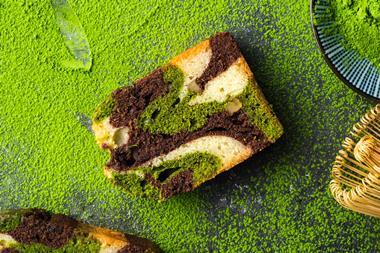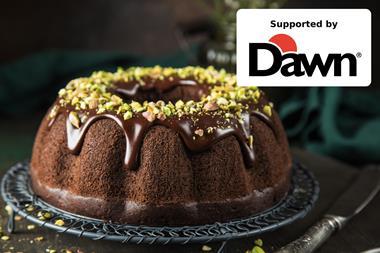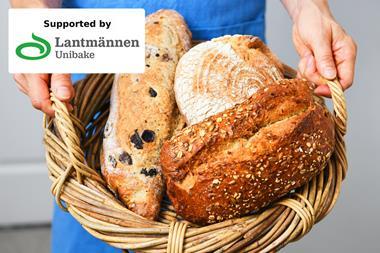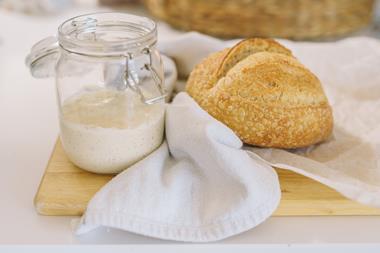With demand for gluten-free goods continuing to rise, more questions are being asked about the healthy properties of such products, and the hunt for vitamin- and protein-rich ingredients is stepping up.
Free-from remains one of grocery’s hottest properties, with supermarket sales of gluten-free baked goods up 17.5% – or £21.3m year-on-year [Kantar Worldpanel 52 w/e 28 January 2018]. Much of this growth is from ‘lifestylers’ – those going gluten-free not for diagnosed medical reasons, but because they perceive it as being better for them.
But the health credentials of a gluten-free diet are open to question. Replacement starches such as potato, tapioca and rice starch, are not whole grains, and some gluten-free products are high in fat, which is used to replace taste and texture.
Given this, what is being done to ensure the category’s biggest strength – the lifestyler – does not become its downfall?
“For an industry that promotes itself as being better-for-you, the nutritional profile can be worse, not better, than standard bakery,” says Hamish Renton, managing director of HRA Global, who has worked in retail and supply and is now a consultant to the industry.
“This reflects the fact that the technical challenges of creating free-from bakery products has arguably more in common with chemistry than baking,” he adds.
But there are positive signs as manufacturers move beyond what Renton describes as the ‘old-school’ approach.
When it comes to fats, hydrocolloids and other natural fat mimetics, such as plant proteins and fibres, can offer alternatives.
“These can give the perception of fat in the mouth without compromising on taste,” says Verity Clifton, technologist at ingredients supplier Thew Arnott.
And algae is being heralded as a gluten-free super ingredient, offering lipid-rich protein properties that can be used to replace egg and dairy fat.
Businesses are continuing to explore naturally gluten-free ingredients such as teff, quinoa, sorghum, millet and oats, which can produce flours and flakes higher in fibre and nutrients than wheat, barley or rye.
“Teff is attracting a great deal of interest,” adds Renton. “I have seen interesting pies, pancakes and cookies using the flour. Oats bring a lower GI and creamy note to desserts and even muffins, while millet is perhaps the most like-for-like wheat substitute. Sorghum is being used in some cutting-edge biscuits and cakes.”
AB Mauri says the growth of its own gluten-free products has been driven by offering outstanding ‘mouthfeel’. “We strive to ensure our customers achieve the maximum potential in terms of nutrition, performance and taste,” adds AB Mauri marketing business partner Sam Cook.
Meanwhile, tiger nuts, a tuber grown in Africa and Spain, can be dried and turned into flour or flakes. These have an earthy sweetness, according to Ani de la Prida, co-founder of at the Tiger Nut Company, and are great in biscuits, cake, bread and make a good gluten-free batter, she says.
Finbar Haughey, sales manager at Andrew Ingredients, says the Ireks gluten-free range, particularly the Singlupan, Singluplus, and Singluplus Vital base
mixes are proving popular. “For health-conscious bakers, these are ideal as they are in control of the nutritionals of the final product,” he adds.
Edme, meanwhile, has continued to increase its market presence since opening a gluten-free mill three years ago, and has now bolstered its free-from credentials with independent certification that it can produce a wide range of gluten-free flours at less than five parts per million (5 ppm). For foods to be labelled gluten-free in Britain and Europe, they must contain no more than 20 ppm.
Such developments – and continued ingredient innovation – should help to ensure the continued good health of gluten-free.
Following the FODMAPs trend
Although not exactly rolling off the tongue, FODMAPs – that’s fermentable oligosaccharides, disaccharides, monosacch-arides and polyols – could offer an opportunity for bakers.
Researchers have suggested that a diet low in FODMAPs – found in ingredients such as wheat, rye, garlic and some dairy products – could help alleviate symptoms associated with IBS, such as bloating, wind and abdominal pain.
Now some baked goods firms are tapping into the market, targeting consumers seeking a low-FODMAPs diet.
Gluten-free brand Schär has created bakery products, including baguettes, bread and ciabattas, for UK super-markets, developed for people following a FODMAP diet.
“We are proud to be the first brand to introduce low- FODMAP certified products into UK supermarkets for customers with IBS,” says Schär category lead Roger Harrop. “The certification of the 10 Schär products as low-FODMAP comes at a time when consumers are increasingly recognising the role of the diet in helping to manage IBS symptoms.”
But Verity Clifton at specialist ingredients supplier Thew Arnott urges some caution before bakers act.
“While there is some cross-over between low-FODMAP diets and diets recommended for those suffering from gluten intolerance, bakers should be wary about producing or marketing products as suitable for low FODMAP. Not only are there labelling requirements, but the type of ingredients that can and cannot be included in low-FODMAP bakery items is complex."
Free-from innovation
Double chocolate brownie, Bells of Lazonby
The Cumbria bakery firm has added the new Ultimate gluten-free and milk-free Double Chocolate Brownies to its free-from range. Sold in cases of 18, they come frozen with a defrost shelf life of four weeks. Each slice is 339 kcals.
Big Choc Macaroon bar, Mrs Crimble’s
The recently launched 60g Big Choc Macaroon Bar, rsp 99p, is based on the recipe for Mrs Crimble’s coconut macaroons, but is in a more convenient format for consumers wanting an on-the-go snack, says owner Wessanen UK.
Americana gluten-free burger bun, Lantmännen Unibake
The Americana gluten-free burger bun is supplied frozen, pre-sliced, topped with sesame seeds and individually wrapped to prevent cross-contamination and to reduce waste. Price is dependent on
order size.
Vegan & gluten-free chocolate & coconut tart, Brakes
This free-from tart for the foodservice market consists of a date and mixed nut case with a chocolate and coconut filling, finished with a coconut swirl. Pre-cut into 14 portions, it has a list price, subject to agreed discount, of £17.99.


























No comments yet